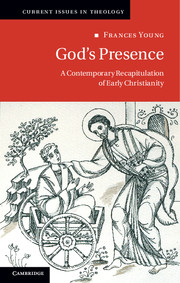Book contents
- Frontmatter
- Contents
- Preface
- Acknowledgements
- Abbreviations
- Introduction
- 1 From pondering scripture to the first principles of Christian theology
- 2 From cosmology to doxology: reading Genesis alongside Plato and Darwin
- 3 From creation to re-creation: nature and the naked ape
- 4 From image to likeness: incarnation and theōsis
- 5 From Adam and Eve to Mary and Christ: sin, redemption, atonement
- 6 From inspiration to sanctification: discerning the work of the Holy Spirit
- 7 From the church to Mary: towards a critical ecumenism
- 8 From dogma to theōria: the Christian God
- Epilogue
- Bibliography
- Index
- References
Introduction
Published online by Cambridge University Press: 05 June 2014
- Frontmatter
- Contents
- Preface
- Acknowledgements
- Abbreviations
- Introduction
- 1 From pondering scripture to the first principles of Christian theology
- 2 From cosmology to doxology: reading Genesis alongside Plato and Darwin
- 3 From creation to re-creation: nature and the naked ape
- 4 From image to likeness: incarnation and theōsis
- 5 From Adam and Eve to Mary and Christ: sin, redemption, atonement
- 6 From inspiration to sanctification: discerning the work of the Holy Spirit
- 7 From the church to Mary: towards a critical ecumenism
- 8 From dogma to theōria: the Christian God
- Epilogue
- Bibliography
- Index
- References
Summary
My intention in this book is to cross boundaries within the discipline of theology in a search for integration. The key topics of Christian doctrine are explored in a way neither simply dogmatic nor historical; rather this is a stab at a systematic theology which has contemporary coherence, but is informed, not by the usual dialogue with contemporary philosophers or theologians, but rather by engagement with the theology of the early church fathers who laid down the parameters of Christian theology and enshrined key concepts in the creeds.
Appropriation of theology from the past necessarily starts by adopting a historico-critical approach to reading extant work – it cannot simply be the exposition of tradition as if tradition could straightforwardly be adopted without question in a totally different intellectual context, as was recognized in Maurice Wiles’ programme of ‘doctrinal criticism’. On the other hand, we are ourselves constrained by our post-Enlightenment, post-modern mind-sets, and the possibility must be entertained that thinkers of the past might challenge the unquestioned assumptions which inform present conceptual frameworks. Being as true as possible to texts from the past, while also being true to ourselves, may be described as ‘ethical reading’. This requires balance between reception and distance, between critique and respect, acknowledging both kinship and otherness. In this respect the aim is a kind of ecumenism over time, a respectful listening to the theological commitments of those with whom we share an identifiably common faith but in very different circumstances.
- Type
- Chapter
- Information
- God's PresenceA Contemporary Recapitulation of Early Christianity, pp. 1 - 6Publisher: Cambridge University PressPrint publication year: 2013

